News
-
 Life
LifeHow the Galápagos cormorant got its tiny wings
Galápagos cormorants’ tiny wings may be due to altered reception in cellular antennas.
-
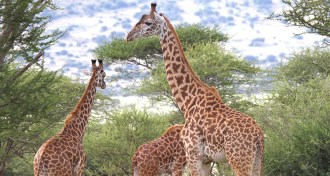 Life
LifeGiraffe’s long neck linked to its genetic profile
Giraffes’ genes may reveal how their necks grew long and hearts got strong.
-
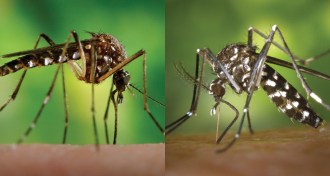 Health & Medicine
Health & MedicineScientists wrestle with possibility of second Zika-spreading mosquito
It’s hard to say yet whether Asian tiger mosquitoes will worsen the ongoing Zika outbreak in the Americas.
By Susan Milius -
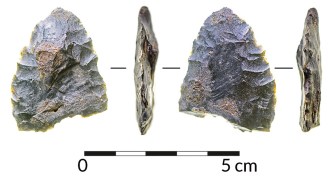 Anthropology
Anthropology‘Slam-dunk’ find puts hunter-gatherers in Florida 14,500 years ago
Finds at an underwater site put people in Florida a surprisingly long time ago.
By Bruce Bower -
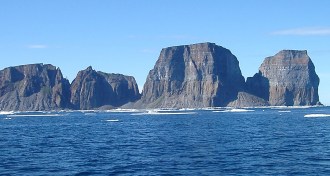 Earth
EarthRemnants from Earth’s birth linger 4.5 billion years later
Shaken, not stirred: Tungsten isotopes reveal that mantle convection has left some remnants of ancient Earth untouched for 4.5 billion years.
By Beth Geiger -
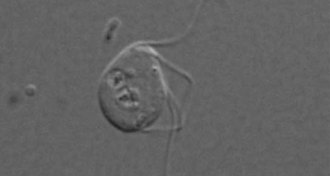 Life
LifeGut microbe may challenge textbook on complex cells
Science may finally have found a complex eukaryote cell that has lost all of its mitochondria.
By Susan Milius -
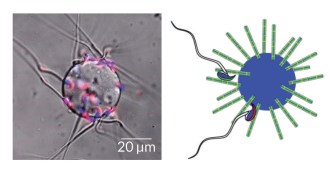 Life
LifeHow to trap sperm
Lab-made beads can trick and trap sperm, potentially preventing pregnancy or selecting sperm for fertility treatments.
-
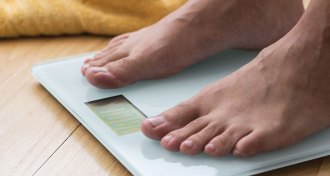 Health & Medicine
Health & MedicineHealthiest weight just might be ‘overweight’
The body mass index tied to lowest risk of death has risen since the 1970s. It now falls squarely in the “overweight” category.
-
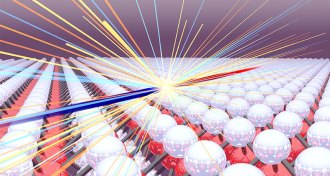 Quantum Physics
Quantum PhysicsPhysicists smash particle imitators
A new quasiparticle collider smashes together the faux-particles that appear in solid materials.
-
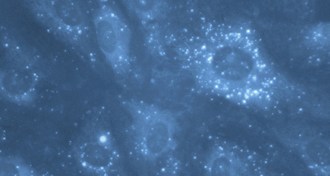 Health & Medicine
Health & MedicineHeartburn drugs can damage cells that line blood vessels
A type of heartburn drugs called proton pump inhibitors may damage cells that line the blood vessels. The results, though controversial, hint at an explanation for PPI’s link to serious side effects, including risk of dementia and heart attack.
By Meghan Rosen -
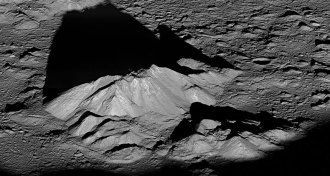 Planetary Science
Planetary ScienceLong-running lunar mission reveals moon’s surprises
Seven years into its mission, the Lunar Reconnaissance Orbiter is still going strong and finding surprises on the moon.
-
 Quantum Physics
Quantum PhysicsCommunicating covertly goes quantum
Researchers are working to make quantum messages that are undetectable.